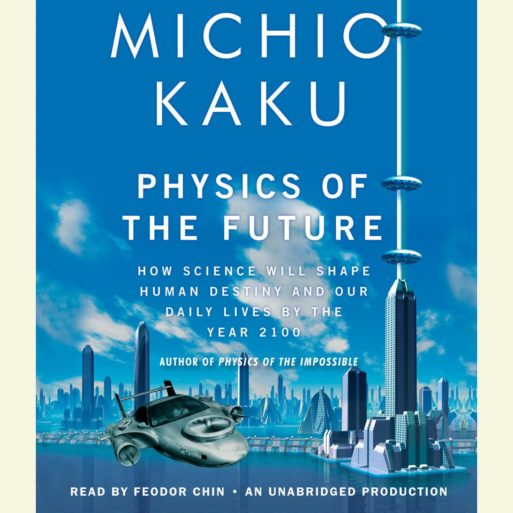 I don’t think the time is quite right, but it’s close. I’m afraid, unfortunately, that I’m in the last generation to die. — Gerald Sussman
I don’t think the time is quite right, but it’s close. I’m afraid, unfortunately, that I’m in the last generation to die. — Gerald Sussman
Predicting the future has always been tricky. Yet everyone, from a working family, to the Harvard School of Business, to the FBI, has probably given it a try at one time or another. The school of futurology, by monitoring trends and applying probabilities, has made predicting the future its business. Like everyone else, they are not always successful.
In his new book, Physics of the Future: How Science Will Shape Human Destiny and Our Daily Lives by the Year 2100, renowned physicist Michio Kaku presents his own contribution to this dialogue, by interviewing over 300 scientists, exploiting his status as a scientific “insider” with access to cutting edge developmental technologies, and applying his own well-honed understanding of the laws of physics.
Among other things, Kaku predicts that humanity will effectively eliminate the energy crisis by mastering the science of cold fusion, develop and commercialize flying cars, and wire nearly every household object, from your toilet to your clothes, to the worldwide web. You would be right to find some of this a bit far-fetched, but how outlandish might an accurate picture of the year 2000 have looked to an individual living in 1900, before the introduction of the radio, when cars were still called “horseless carriages?”
Some of Kaku’s predictions, should they come to pass, will change not only our day-to-day lives, but our very understanding of human life and death. In his chapter, the “Future of Medicine: Perfection and Beyond,” Kaku predicts the elimination of nearly every fatal disease (though not AIDS or cancer), the game-changing introduction of nanotechnology into the field of medical care, and the ability to prolong, if not absolutely halt, the aging process. Through advanced tissue engineering, new organs can be grown from cells taken from your body, and your old ones can be replaced and discarded like worn down automobile parts. Organ failure, today a common consequence of aging and accident, will be all but eliminated as a cause of death.
Indeed, death itself will be brought under some degree of control. That bodily deterioration that eventually brings it upon everyone–that is, the aging process–will be slowed, and possibly even halted. Says Nobel laureate Richard Feynman, “There is nothing in biology yet found that indicates the inevitability of death. This suggests to me that it is not at all inevitable.” Kaku posits that, because we are under evolutionary pressure to reproduce during our younger years, an animal becomes a burden on the group once it’s passed its prime, and hence “perhaps evolution has programmed it to die of old age.”
“There is nothing in biology yet found that indicates the inevitability of death.”
He identifies several elements in the equation currently under exhaustive study:
- SIRT genes, present in all humans, which produce proteins called sirtuins that can repair the cellular damage that leads to aging.
- Animals with a slower metabolism live longer, and hence, by lowering caloric intake and decreasing the rate of one’s metabolism, life can theoretically be significantly extended.
- There is an enzyme called telomerase, which can be synthesized in a laboratory, and essentially makes cells immortal (telomerase is produced by cancer cells, and allows them their ability to reproduce uncontrollably—it is therefore also potentially dangerous, and still largely mysterious).
According to Kaku’s book, human beings will eventually be able to nearly “stop” their body’s aging, at a choice age somewhere in their early thirties, and proceed to live 130 years longer. At least.
If this comes to pass, human life as we know it will be a different animal altogether. Death will cease to be a driving factor in decision-making. There will be no such thing as a “mid-life crisis” or a “prime of life.” For some people, this might be too much. The thought of immortality is not appealing to everyone. Without death, that constant, harsh possibility, that inevitable destination at the end of the road, what would our lives look like? What structure would they take? Would this encourage financial saving or more profligate spending? Risk taking or prudence? Would anyone still have a reason to pursue their goals, if they always have the option of picking them up two decades later? For now, who can say? But, give us a hundred years, and, according to Michio Kaku, we may all find out.

 Physics of the Future, by Michio Kaku
Physics of the Future, by Michio Kaku


 How Dare You Die Now!
How Dare You Die Now!
 Debating Medical Aid in Dying
Debating Medical Aid in Dying
 “Help Me, Helen”
“Help Me, Helen”














